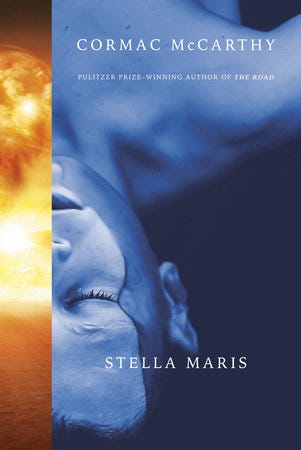As a security measure, we will never ask you for reading recommendations over the phone. If you did not request this WRB, contact us immediately:
To do list:
order a tote bag or now a MUG, both of which receive rave reviews and are as functional as they are stylish; and,
avail yourself of our world-famous classified ads, now stored on this page for non-paying readers to access, either by placing or responding to one.
Links:
Dan Kois for Slate with the strange story of a now-forgotten poet: “Rod McKuen was a born liar. Let’s say: a storyteller. ‘It made my job very, very hard,’ said Barry Alfonso, the author of the only serious biography of Rod McKuen, called A Voice of the Warm. ‘He was a fabulator,’ Alfonso told me. ‘He made up lots of stuff about himself.’ McKuen claimed he was employed as a cowboy as a preteen. He claimed he made movies in Japan no one has ever seen. He even claimed he had two children, which he did not.”
Nobody who’s read it can forget the opening of Jesus’ Son (1992) unless they put a lot of effort into it or try drugs or something. For The New Yorker Ted Geltner writes about tracking down the people who inspired the scene: “He bid the hitchhiker farewell, and never saw him again. In the spring of 1989, The Paris Review published ‘Car Crash While Hitchhiking,’ a short work of fiction by Denis Johnson. The story it told was one that Johnson had repeated, in different forms, many times, beginning when he was twenty-two years old and newly returned to Iowa City, having just survived a harrowing accident on a dangerous road in northern Missouri.”
[Sometimes I have these moments second guessing myself along the lines, Why would I bother linking to the big interesting looking essay from the latest NYRB, Could anyone have failed to see this already, Et cetera. Then with some perspective I realize, that’s probably why you’re here. Anyway, new Merve Emre on the personal essay. —Chris]: “What makes essays that tell stories about people bad? For Adorno, as for Walter Benjamin, one of the essayists Adorno most admired, essays about people betray the true object of essayistic criticism: the private individual. The private individual is not a particular person with a particular story to tell, no matter how distinctive, original, or purely bizarre that story may be. The private individual is not a proper name—not ‘Virginia Woolf’ or ‘Elizabeth Hardwick,’ not ‘Joan Didion’ or ‘Zadie Smith’ or whoever it is you consider your favorite personal essayist to be. Rather, it is the idea that animates all these figures, the powerful, unobtrusive concept that gives the personal essay the appearance of ventriloquizing a singular and spontaneous subjectivity.”
“J. Hoberman claims that ‘There are more ideas about more things in any five minutes of Godard’s latest opus, Goodbye to Language, than in the year’s five next most intelligent movies combined’—which may be true; I won’t argue—but the more important point is that Godard’s ideas are bad. They are superficial, commonplace, simplistic, undigested.”: Alan Jacob means this somewhat affectionately about Jean-Luc Godard, online for The Hedgehog Review.
Reviews:
For Book Post, Anakana Schofield reviews Rosemary Tonks’ satirical novel The Bloater (1968, but rereleased last month from New Directions): “Twelve years later a dour religiosity was to overtake Tonks and drive her from the scribbling profession, public view, and presumably also the preoccupations here described—we can never know. It’s hard to visualize how such a funny writer could forgo such a wealth of material.” [Dour religious people can actually be pretty funny. —Chris]
For Boston Review, Rachel Fraser reviews a new book about the philosophical and ethical import of epiphany (Epiphanies: An Ethics of Experience, October): “Certainly, the experience of love—even unrequited love—can be sumptuous, what C. S. Lewis calls ‘an unsatisfied desire which is itself more desirable than any other satisfaction.’ But Chappell’s thoughts are not along these lines. Love’s value, for her, is not in any sense hedonic. What, then, is its value? The symbolic realities it bonds us with are not Plato’s forms, despite Chappell winking in that direction. They are human artifacts. Her idea is that love is a heavily storied stratum of human experience, a hallway down which many have walked and hung their pictures. The experience of love matters because it allows us, too, to walk down this hallway and look at its pictures. It unites us with others not because it unites us with the beloved, but because it makes legible love’s icons.” [Maybe save for the weekend? —Chris]
For The Nation, Adam Kirsch reviews a volume of essays out earlier this year by the late Isaac Bashevis Singer (Old Truths and New Clichés, May): “Singer’s own lifelong identity as a newspaperman informed his thinking about literature, especially his suspicion of the pretentious and the abstract. ‘“No matter how deep a literary work may be, if it bores the reader, it is worthless,’ he declared. The job of the novelist isn’t ‘to analyze or to probe,’ but to report something new about the world—’some sort of revelation, a fresh approach, a different mood, a new form.’ As he put it in the essay ‘Who Needs Literature?,’ writers ‘are entertainers in the highest sense of the word. They can only touch those truths which evoke interest, amusement, tension…. In art, a truth which is boring is not true.’”
N.B.:
For the first entry in Public Books’ series “Hacking the Culture Industry,” Melanie Walsh notes that no one knows the numbers about the books.
Wisdom of Crowds is hiring a part-time managing editor.
How Lord Byron lost a cursing contest to an Italian “monster of languages … a walking polyglot … who ought to have existed at the time of the Tower of Babel, as universal interpreter.”
Dept. of Indirect Articles
An 82-year-old woman in Annandale is giving away more than 100 Happy Meal toys, accumulated over the past decade.
A new issue of The Point, “Back to Life” is coming out.
An interview with book designers about why books all look the same.
A surprisingly long, surprisingly sumptuous look at how diplomats dine.
The staff of The New Statesman is trying to unionize.
John Carpenter doesn’t get the appeal of A24 either.
This is a genuinely neat section of their website the ERB made mention of in their newsletter this week: A sortable library of all their content categorized according to a large lexicon of topics.
Upcoming book:
December 6 | Knopf
Stella Maris
by Cormac McCarthy
From the publisher: 1972, BLACK RIVER FALLS, WISCONSIN: Alicia Western, twenty years old, with forty thousand dollars in a plastic bag, admits herself to the hospital. A doctoral candidate in mathematics at the University of Chicago, Alicia has been diagnosed with paranoid schizophrenia, and she does not want to talk about her brother, Bobby. Instead, she contemplates the nature of madness, the human insistence on one common experience of the world; she recalls a childhood where, by the age of seven, her own grandmother feared for her; she surveys the intersection of physics and philosophy; and she introduces her cohorts, her chimeras, the hallucinations that only she can see. All the while, she grieves for Bobby, not quite dead, not quite hers. Told entirely through the transcripts of Alicia’s psychiatric sessions, Stella Maris is a searching, rigorous, intellectually challenging coda to The Passenger, a philosophical inquiry that questions our notions of God, truth, and existence.
Keep reading with a 7-day free trial
Subscribe to Washington Review of Books to keep reading this post and get 7 days of free access to the full post archives.








